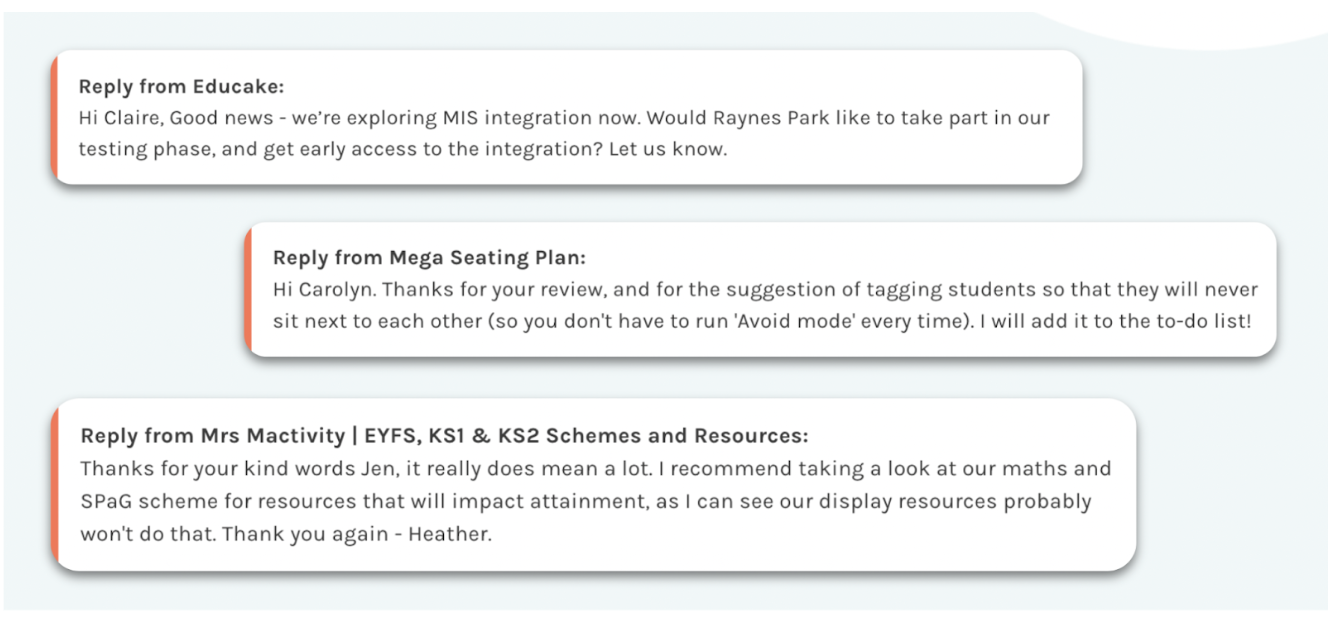Strategy Lab Spotlight: Insights from Michael Forshaw at EdTech Impact
Michael Forshaw, CEO of EdTech Impact, joined us for our second session of the EdTech Strategy Lab Summer Workshop Series to share his insights in building a robust platform to help educators and school leaders make smarter EdTech purchasing decisions.
EdTech Impact was set up in the UK over six years ago to address the lack of trust and transparency within a crowded EdTech marketplace. One of the main challenges was that EdTech companies were not incentivised to provide schools with the information they really needed. As Michael puts it:
“We have seen a graveyard of EdTech platforms and marketplaces over the years. Many struggled to stick around because they didn’t really answer the questions that schools needed answers to.”
Following the COVID-19 pandemic, EdTech Impact has grown to become a trusted destination for schools by pushing companies to provide detailed profiles of their products, powered by thousands of authentic education technology reviews, ratings, and certifications. EdTech companies compete all year-round to showcase their quality and stand out alongside competitors, while schools get access to a growing database of user-generated insights and granular comparisons of similar solutions.
On the platform today there are approximately 500,000 active users, over 26,000 reviews and ratings, and approximately 5,000 EdTech products profiles across 100 different categories ranging from tools that help reduce teacher workload to those focused on improving student outcomes.
What differentiates EdTech Impact’s reviews from generalist review sites is the specific focus on ‘impact metrics’. Built with researchers from University College London, these impact metrics nudge educators to share details on how they are using tools to drive outcomes, asking reviewers to state how long and how frequently they have been using the product. A numerical score is also collected, with all data points aggregated into an overall ‘EdTech Impact rating’. According to Michael, the reviews are designed to build a picture of how the product is performing across a variety of contexts, with candid insights into how it is being used by different user types.
Educators are notoriously busy, and so to get the volume of insights needed to make EdTech Impact useful, the team devised a model that incentivised EdTech companies to move away from self-reported claims, and towards a new model of collecting customer feedback through a third-party on an ongoing basis.
Michael’s team experienced many initial push backs from companies concerned about publishing unfiltered results onto an open marketplace platform.
“We learned early on that educators are generally not compelled to leave reviews of the products that they use.”
Over time, however, EdTech Impact’s flywheel began to turn, as companies realised that the more they leaned into the process, the more visibility and leads they generated from potential buyers. Instead of spending hours building case studies, they got a stream of unique insights on how to improve their product–and in some cases, early identification of customers that were about to churn.
In the last 12 months, EdTech Impact has expanded its EdTech quality framework to include evaluation and certification of a product’s lawfulness, safety, and pedagogical quality. They acquired Education Alliance Finland, a market leader that trains teachers on how to critically evaluate an EdTech product’s curriculum alignment, pedagogical approach and learning engagement, with over 400 certifications awarded to date.
They are also building a new pillar called ‘researched impact’ that assesses the robustness of any studies EdTech companies may have completed, while working on optimal ways to present this information to the schools using their platform.
Most recently, EdTech Impact has launched a new product called EdTech Impact Manager to enable school leaders to monitor the effectiveness of their existing technology investments. Within the UK context, a new trend is emerging where school group leaders, as part of their digital strategy, need full visibility of their EdTech ecosystem to help them to optimise their spend and understand which schools and teachers need more support. EdTech Impact Manager delivers actionable insights by unifying disparate data across product usage, performance, spend and compliance.
When combined with EdTech Impact’s data, schools get their own real-time EdTech dashboard, with daily monitoring on which areas to streamline, expand or support within different contexts. They are currently supporting 300 schools on the platform, and are building a waiting list of new schools and groups to support in the new academic year.










